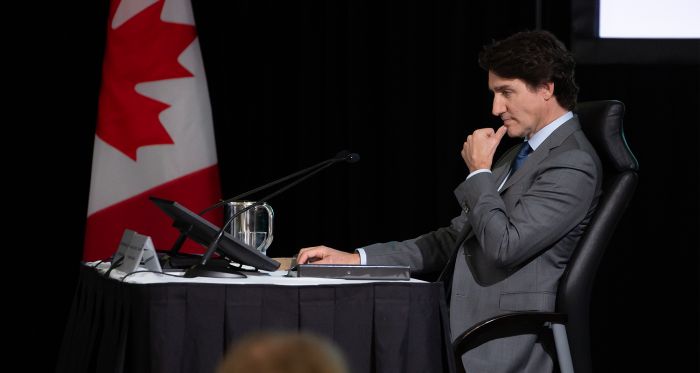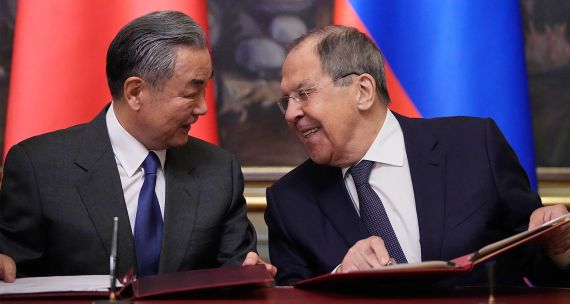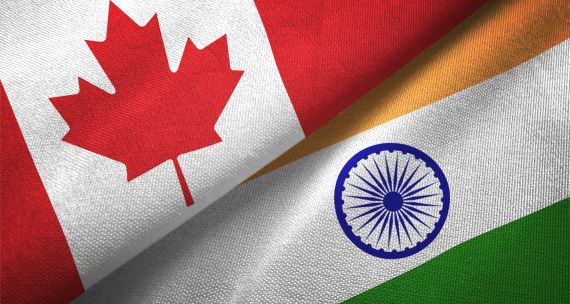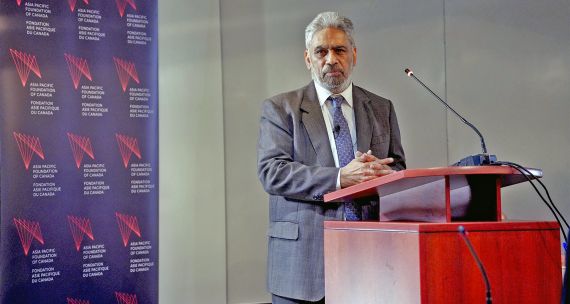Foreign interference in our democratic institutions, if not adequately addressed, will become a grave, persistent, and — in the words of David Vigneault, director of the Canadian Security Intelligence Service (CSIS) — “existential” threat to Canadian democracy.
As Vigneault and others testified during the first phase of Canada’s public inquiry into foreign interference, a number of different “threat actors” attempted to meddle in Canada’s 2019 and 2021 federal elections. The testimony focused on threat actors deployed by several countries: China, India, Iran, Pakistan, and Russia. However, it was the activities directed by China that were found to be the most sophisticated and well-resourced, according to summary documents of CSIS reports released during the hearings.
The first phase of the inquiry also revealed that many Canadian diaspora communities were on the front lines of these interference measures, whether as targets and victims of harassment and intimidation, or, in a few instances, as witting or unwitting participants.
The inquiry also underscored that transparency and information-sharing are vital to building societal resilience, which in itself is an integral part of any response to foreign interference. In that regard, the information made public through the inquiry process is already a step in that direction.
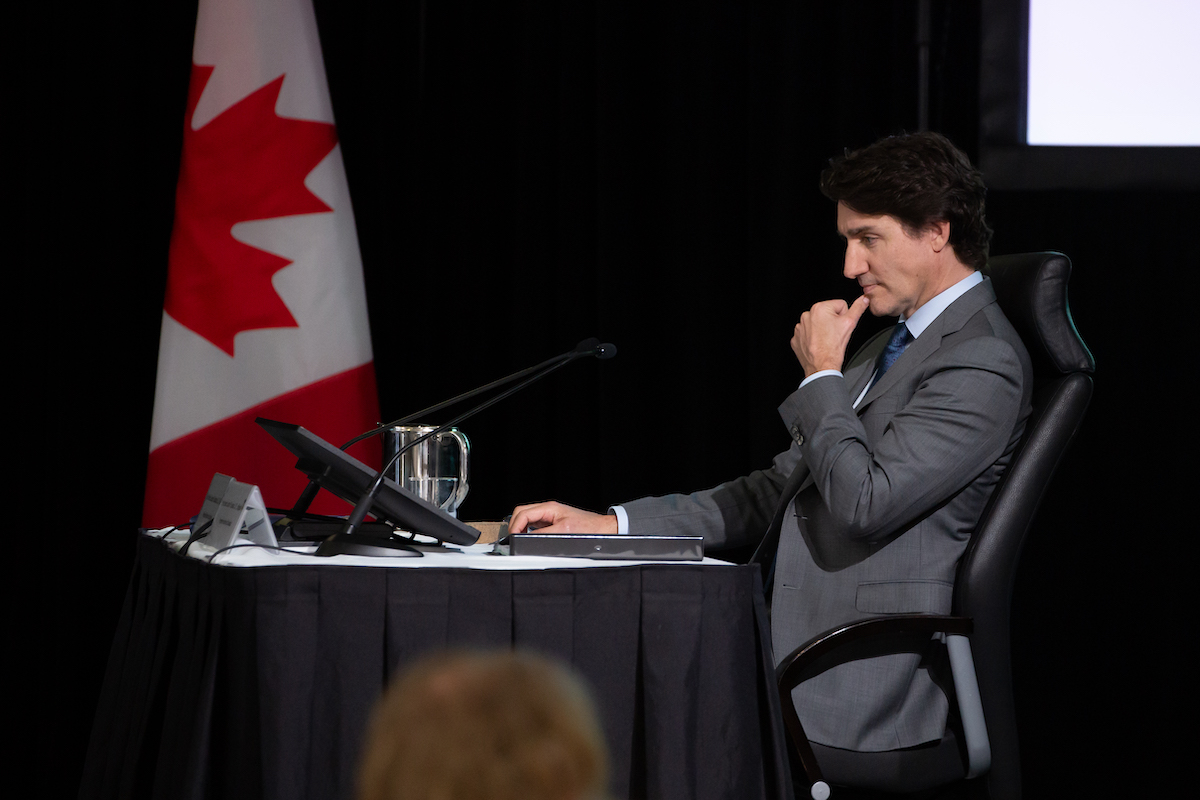
Nevertheless, there is much more to be done to detect, deter, and defend against foreign interference. The variety of threat actors and the complexity of their actions and motives will require much greater urgency and nimbleness from the Canadian government and its institutions than previously recognized.
Foreign actors seeking to interfere in Canadian democracy are continuously adjusting their approaches to identify and exploit vulnerabilities. Defending our institutions against these intrusions can only happen with a robust whole-of-government and whole-of-society approach.
This Briefing Note is a summary of the first phase of the public inquiry, which took place from March 27 to April 10. More than 60 witnesses –– including diaspora activists, Elections Canada officials, political party representatives, current and former parliamentarians, senior civil servants, Cabinet members, and the prime minister and his staff –– provided testimonies on alleged interference by China and other foreign actors in the 2019 and 2021 federal elections.
Recap: What’s happened so far?
In late 2022, Canadian media outlets began reporting that CSIS had uncovered a “vast” and “sophisticated” interference campaign by the People’s Republic of China (PRC) aiming to influence and disrupt the 2019 and 2021 federal elections.
Reports suggested that Beijing’s primary goal was to re-elect the federal Liberal Party into a minority government and suppress the campaigns of “anti-China” candidates.
In March 2023, Canadian Prime Minister Justin Trudeau appointed David Johnston, former governor general of Canada, to investigate these claims as an independent special rapporteur. Johnston left the position in June of that year after opposition parties voted for his resignation.
In September 2023, the Government of Canada announced that there would be a public inquiry, with Quebec justice Marie-Josée Hogue chosen as commissioner. While the focus of the inquiry centres on China, India, and Russia, the alleged activities of Iran and Pakistan have also been mentioned.
Between January 29 and February 2, 2024, preliminary hearings were held with security and intelligence experts. They advised the Foreign Interference Commission on how to publicly discuss and share classified information without jeopardizing Canada’s national security.
For more background on the foreign interference inquiry process, see APF Canada’s Briefing Note.
Key takeaways
- Testimonies from a diaspora panel highlighted foreign governments’ alleged use of intimidation, misinformation, and covert infiltration, with consulates and embassies reportedly acting as hubs for these activities.
- China’s alleged actions during the 2019 and 2021 elections include coercing international students to vote for “pro-Beijing” or “neutral” candidates in nomination races, co-ordinating misinformation and threat campaigns against “anti-Beijing” politicians, and covertly sending C$250,000 to “threat actors” — including a staff member of a 2019 candidate and an Ontario Member of Provincial Parliament (MPP) –– who allegedly advanced Chinese interests through Canadian democratic institutions.
- Summary intelligence reports released at the hearing highlighted that “Canada has been slower than our Five Eyes allies to respond to foreign interference” and that since “there are no consequences, either legal or political,” for foreign interference, Canada is a “low-risk and high-reward” target.
- Top civil servants responsible for election integrity, known as the Panel of Five, testified that they chose not to issue public warnings in 2019 and 2021, as the alleged activities did not rise to the level they deemed necessary for a public warning and did not jeopardize Canada’s “ability to have a free and fair election.” They believed a warning could “create confusion” and be seen as a “partisan position.”
- Prime Minister Justin Trudeau emphasized that the two elections “held in their integrity” and “were decided by Canadians.” He discussed being “very much limited in [his] ability to contradict the false allegations” made by media leaks without jeopardizing national security.
- Trudeau also told the Foreign Interference Commission that “the only way to guarantee” that he receives critical information is to communicate orally with him or his national security and intelligence adviser.
- The commission recalled David Vigneault, director of CSIS, Canada’s spy agency, to testify on April 12 after witnesses from the Prime Minister’s Office told the commission they were not fully briefed by the security organization. Vigneault confirmed that he had briefed the prime minister and his office that CSIS knew “that the PRC clandestinely and deceptively interfered in both the 2019 and 2021 general elections,” but stated that he concurred with the Panel of Five’s conclusion, which was that interference did not have an impact on the general election.
On Han Dong’s nomination vote in Don Valley North
- Former Liberal and current Independent Member of Parliament (MP) Han Dong addressed the allegation that a busload of international students was arranged by a “known proxy agent” of the PRC to support his nomination vote. Intelligence documents presented during the hearings state that the proxy provided the students falsified identification documents with addresses that enabled them to vote in Dong’s riding.
- Liberal campaign director Jeremy Broadhurst told the commission that there was “nothing inherently wrong with transporting foreign students ... if they had properly registered as Liberals in the nomination ... [and] were residents in the riding.”
- Bill Blair, former Liberal minister of public safety and emergency preparedness, stated that while he was briefed on the “irregularities” surrounding Dong’s nomination vote, he was not concerned about the reports because they were not “firmly substantiated” and “did not suggest” that Dong was aware of potential interference, nor that the election results had been compromised.
- Prime Minister Trudeau similarly testified that there was not “sufficiently credible information” to justify Dong’s removal. He reiterated that CSIS had not advised him to rescind Dong’s nomination, contrary to media reports.
- The Panel of Five decided that the concerns regarding Dong’s riding did not meet the threshold for a public warning.
On the 2021 misinformation campaign against the Conservative Party
- Former Conservative leader Erin O’Toole shared that the results of the 2021 election were not consistent with his team’s modelling and suggested that his party lost up to nine seats due to voter intimidation or suppression and the PRC’s disinformation campaign.
- Former Conservative MP Kenny Chiu shared with the inquiry screenshots of false, defamatory stories circulated on WeChat among the diaspora community. He reported that local Chinese-language radio stations also spread misinformation. Intelligence documents from the hearings suggest that these fake stories employed language that mirrored articles published by Chinese state media, suggesting PRC involvement.
- Prime Minister Trudeau told the inquiry that during the 2021 election, he was not aware of the misinformation campaign against the Conservative Party, nor the allegations regarding China’s preference for a Liberal minority government. He thought it would be “improbable” that China would have that opinion on the election, as Canada-China relations had soured significantly due to the ‘Two Michaels’ situation.
- Former public servant Nathalie Drouin, who served on the Panel of Five, told the inquiry that the panel did not have concrete proof that the Chinese government was responsible for the misinformation.
Government and security responses to alleged foreign interference
- Cabinet ministers testified that prior to media reports on interference in the elections, they typically received “high-level” security briefings regarding possible threats, which did not include the names of potential targets or perpetrators. Public Safety Minister Dominic LeBlanc said he only began receiving detailed briefings after the allegations appeared in the public domain.
- Senior representatives from the Liberal, Conservative, and NDP campaigns testified that they did not receive important documents outlining China’s alleged interference strategy from the Security and Intelligence Threats to Elections (SITE) Task Force –– the non-partisan body tasked with raising the alarm about possible interference activities. Liberal Party national director Azam Ishmael further noted that the briefings from CSIS could be characterized as “cybersecurity 101.”
- Elections Canada maintained that it faced challenges investigating foreign interference, as the body lacks the authority to fully audit donors to uncover hidden transactions (e.g. funding from foreign actors).
- Various MPs and diaspora representatives testified that authorities did not adequately respond to their concerns about foreign interference. “It’s almost like I was drowning, and they were watching it, and the best they could do is to let me know that I’m drowning,” said former Conservative MP Kenny Chiu.
On anti-Asian discrimination
- Former Conservative leader Erin O’Toole told the inquiry he chose not to bring attention to the targeting his party faced because such discussions at the time (i.e. within the context of COVID-19) could have been portrayed as perpetuating anti-Asian racism.
- Winnie Ng, co-chair of the Toronto Association for Democracy in China, also discussed the accusations of racism she faced from other members of the diaspora community when she advocated for a foreign influence transparency registry in Canada. She cautioned that the commission’s recommendations could be subject to similar criticisms.
- Senior staff from the Prime Minister’s Office testified that they felt the Conservative Party’s platform had shifted its rhetoric from “criticism of the Communist Party regime” to insinuations that Chinese and Canadian values were inherently “incompatible,” which “[turned] off the Canadian Chinese community” at a time when anti-Asian discrimination was at an all-time high.
- On March 28, following the diaspora testimonies, the commission received an open letter from some members of the Montreal Chinese community who feared that the inquiry could jeopardize their democratic right to vote “without raising suspicions of being influenced by a foreign power.”
On the Foreign Interference Commission’s efforts to balance transparency and national security
- Commissioner Hogue acknowledged the challenges posed by the commission’s “confidentiality imperatives” on keeping the public inquiry “transparent and open.”
- Hogue reaffirmed the need to keep certain information confidential to protect Canada’s national security, including the sources of intelligence, identities of agents, methods of intelligence collection, and details of ongoing investigations.
- The commission opted to adopt a protocol of “flexible rules of evidence,” allowing witnesses to refrain from answering questions that could “elicit information protected by national security confidentiality.”
- Prior to March 27, the commission held six days of in-camera (i.e. private) hearings at the request of Canada’s attorney general. To maintain its commitment to openness, the commission prepared summaries of these in-camera meetings, which served as evidence for the public hearings.
- Despite needing to “walk a very fine line” in its work, Hogue vowed that the inquiry would be “as transparent as possible” and result in a report that can be “reviewed, understood and weighed” by Canadians.
Conclusion
Following several days of public and in-camera hearings, the Foreign Interference Commission will now prepare an interim report for release on May 3. The report will assess to what extent the alleged actions of China and other foreign actors impacted the 2019 and 2021 elections, and whether there was an adequate flow of information between key decision-makers, including elected officials, who were responsible for protecting the integrity of the two elections in question.
Public hearings will resume in the fall, likely in September, when the commission will continue its fact-finding mission to determine Canada’s capacity to “detect, deter and counter” foreign interference and provide recommendations on how Canada can better protect its democratic institutions. A final report will be produced in December 2024.
